Italy trip: Agrigento
26 photo with description27.04.2014 18:13
27.04.2014 18:13
Andrey Panevin

The first city which we have visited in Sicily — Agrigento, not including point of our stay — suburb Mazara del Vallo.
Agrigento the city ancient, is based during age-old times, about 581 or 582 BC, by Rhodians colony Akragas. And the finest that in the Valley of Temples ruins of the Greek temples, one of which in excellent, to measures of structures of such prescription, a condition have remained.
Having arrived to the Valley of Temples, we have left cars on ecologically correct parking — directly under fruit-trees (terribly to present that here is created at the height of a tourist season, poor oranges).
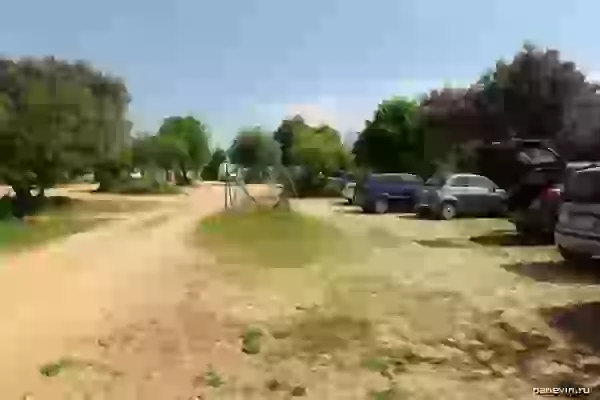
Having dismounted, have moved to be educated. Here young ladies are engaged in selfie:
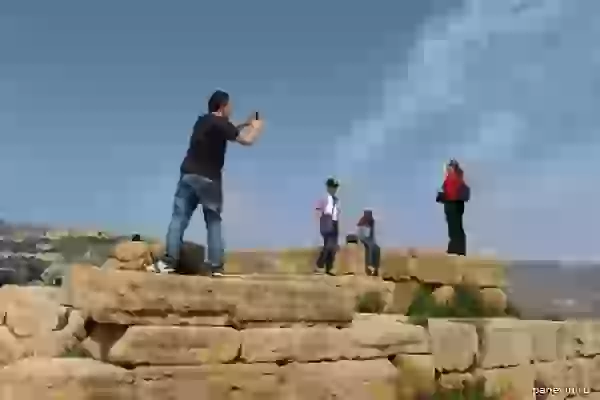
And here our small group of historians too has not stood aside and makes a photo.
But we have distracted. So, actually antique antiquity:
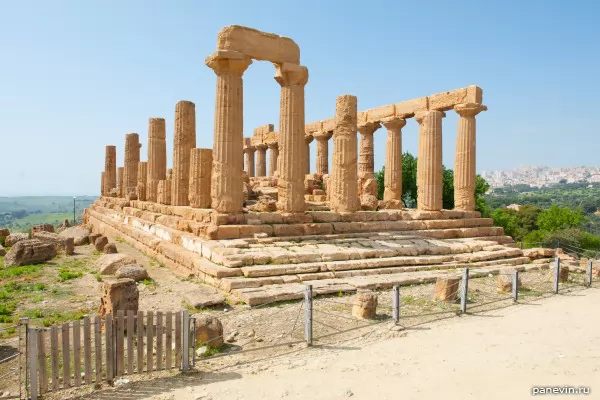
The colonnade which has remained up to now of Hera Temple (English Juno Temple), constructed by Greeks in V century B.C.
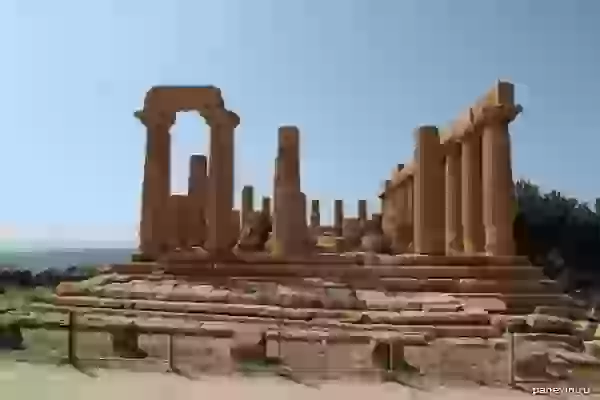
Greek Hera Temple ruins.
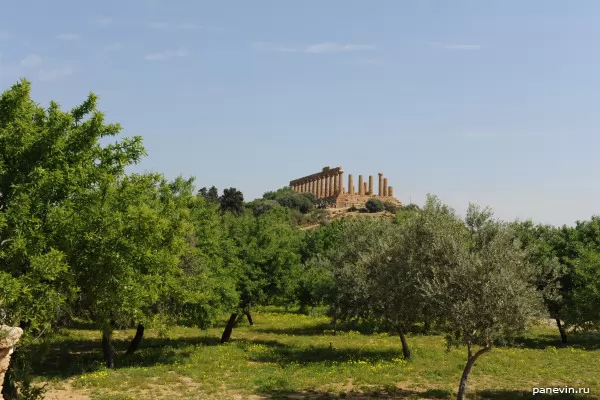
Between ruins all green, is set by low and well well-groomed trees. A view on Hera Temple.
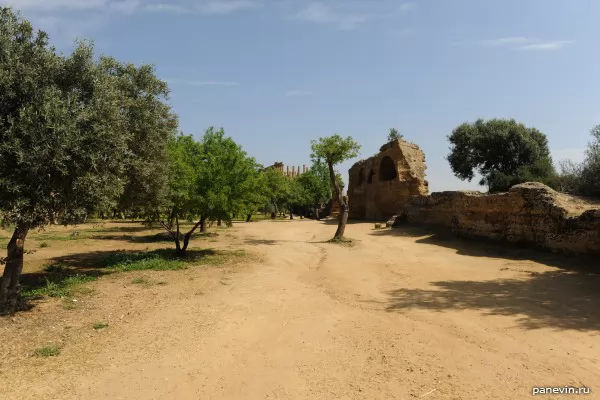
On the right — the rest of a fortification in the ancient time surrounding an Ancient Greek city Akragas, once in the extent about 12 km.
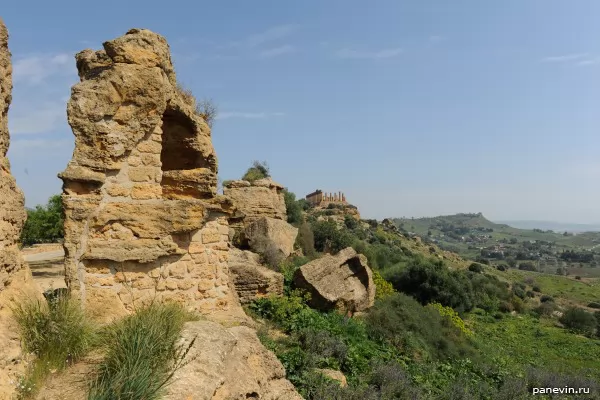
In nowadays remained at most one and a half kilometre of a wall. Hera Temple ruins in the distance are seen, the wall lasts from it to Consent Temple and Hercules Temple.
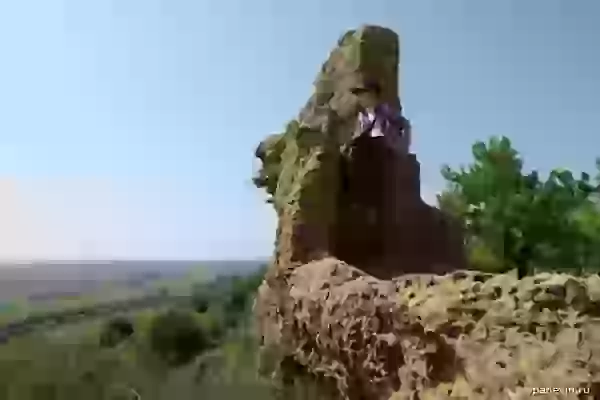
Part of a fortification of Akragas. And the most young historian of our expedition.
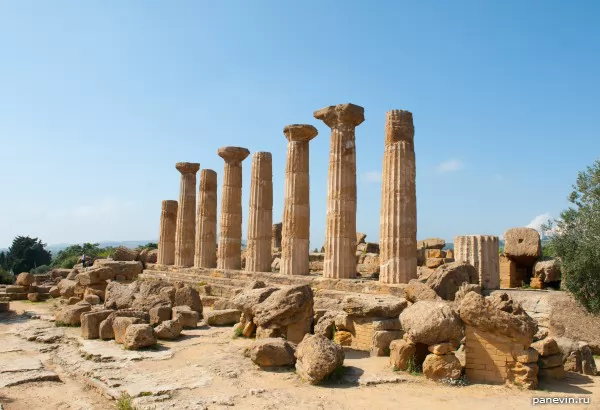
Greek Hercules Temple has remained worse — one party of a colonnade, and construction of same V century B.C. (470-460 B.C.)
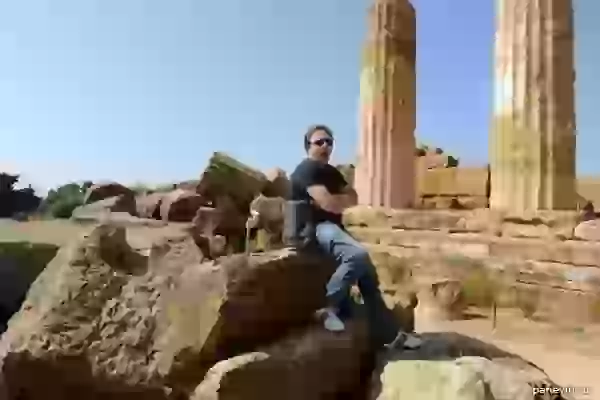
Our oldest historian has got tired from an antiquity abundance. But we have courageously continued our way.
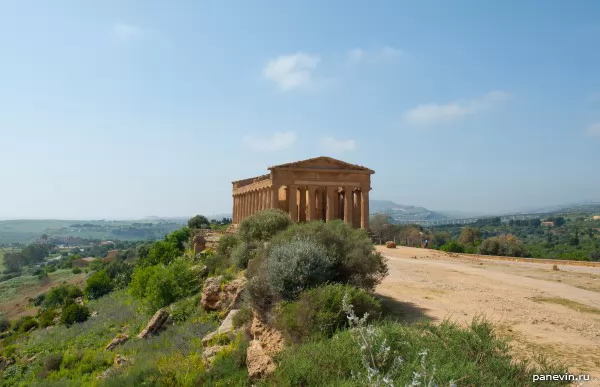
And here the Consent Temple (Tempio della Concordia [italian], Harmonia [greek]) has remained perfectly, to measures antiquity, certainly. In the Middle Ages the temple has been altered in Christian (without total reconstruction), therefore, most likely, and remained up to now. Archeologists have found out nearby to a temple the tablet much more youngly a structure and the relation to it of an inscription not having with a part on Latin «Consent» from what the temple and has received a present name.
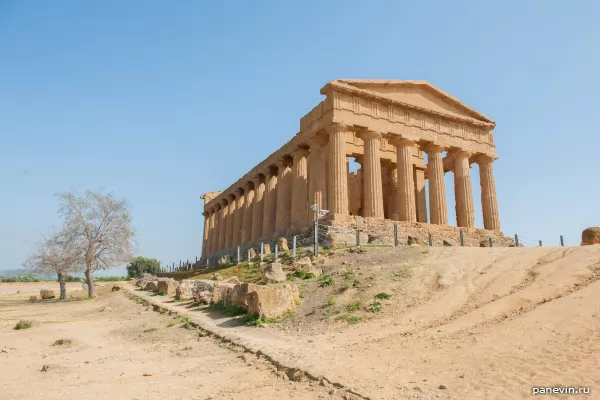
Temple of the Consent (Harmony) in the Valley of Temples in Agrigento.
And this temple was not been completed, and then still and the largest but was razed doric the Temple of Zeus Olympic from which the huge figure of Zeus (and it have tidied up in a museum).

Before the Consent Temple statue of Icarus — a modern statue in the spirit of surrounding antiquity has lain down.
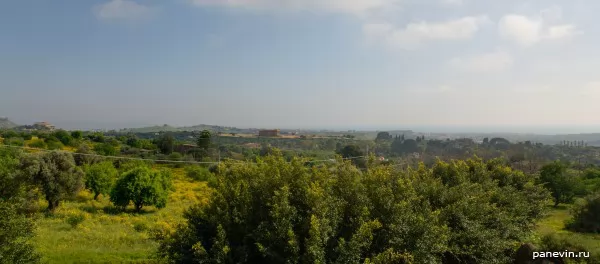
Valley of Temples (ital. Valle dei Templi) in Agrigento — the rests of the Greek temples on a place Rhodians colonies of Akragas.
March, look as all blossoms! And oranges already ripe!
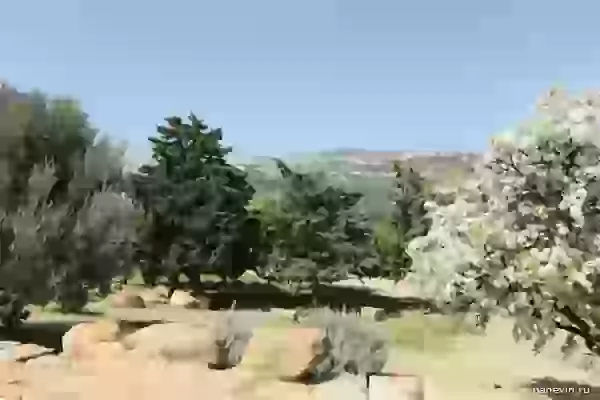
View of Agrigento from a hill of the Valley of Temples.
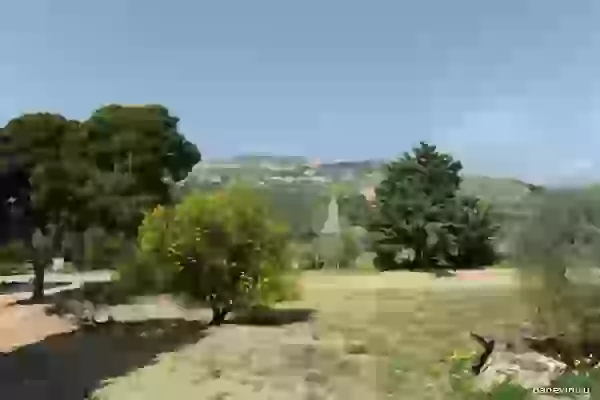
View of Agrigento from a hill of the Valley of Temples.
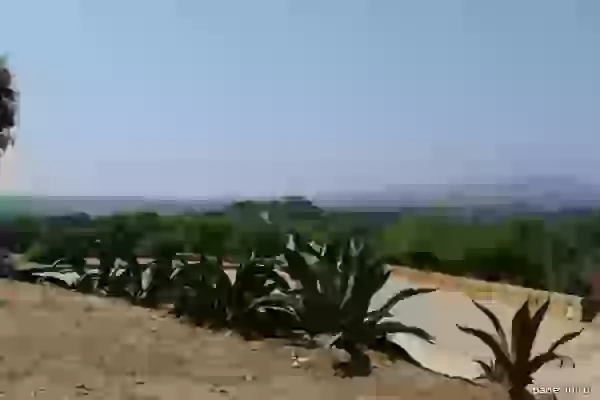
View the Temple of the Consent and Agrigento. On road roadsides between ruins cactuses and here such plants with long leaves grow (from a hall prompt — an agave; I am not strong in a tops of vegetable). The last, poor fellows, all with inscriptions on leaves. Local and coming гопота considers as the debt to scratch a knife a name of the imbetsila-author, a city and year.

Here, even from almost native Arkhangelsk there were two morons:
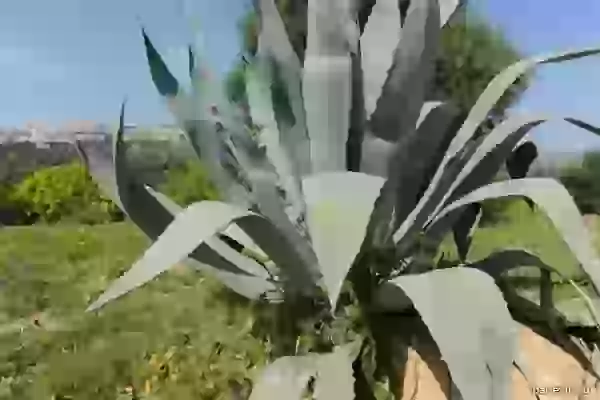
At last we have glanced to a local archaeological museum.
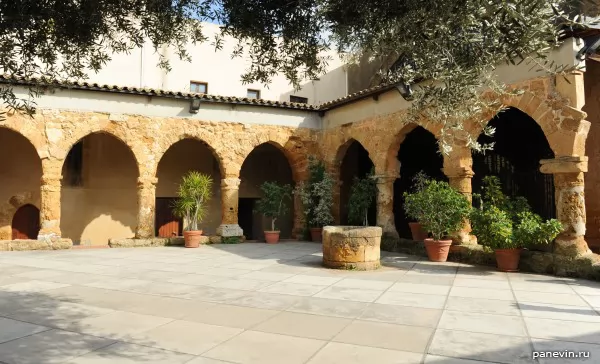
Colonnade of the Museum of Archeology.
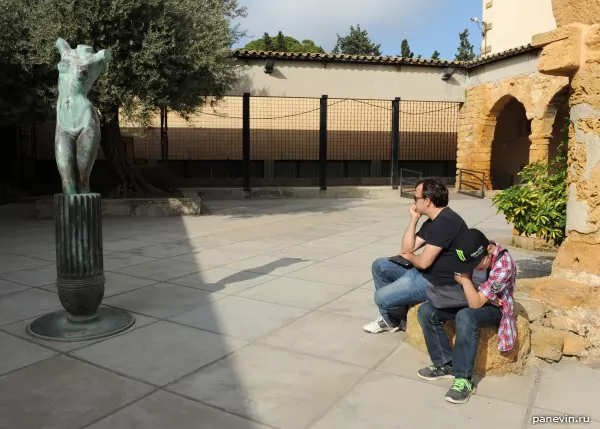
Modern statue before the Archeology Museum. Our valorous historians have already fairly got tired.
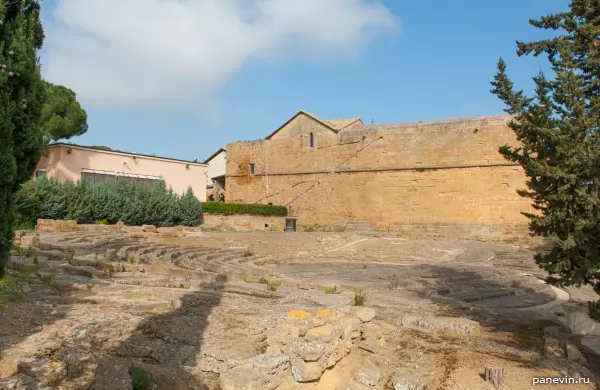
Oratorios (ital. Oratorio di Falaride) near St. Nikolay's church (ital. Chiesa di San Nicola). The construction rests ~II centuries B.C., an oratorio of Falarisa — the backward tyrant.
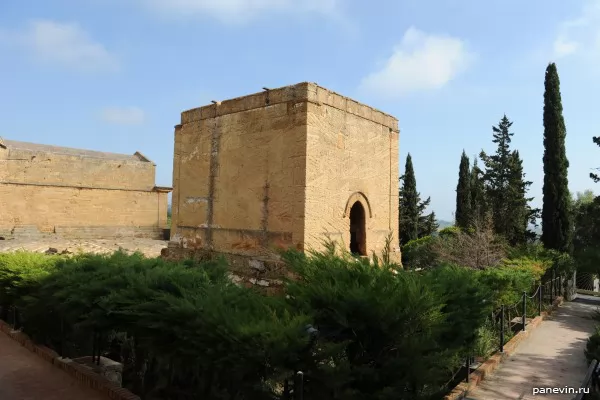
The Roman ruins near Oratorija Falarisa. On a background — St. Nikolay's Church, on an average — Oratorios of Falarisa (ital. Oratorio di Falaride).
And in the end of a selection of photos of Agrigento the fine world map:


Horizon is filled up, and we have gone to home. Tomorrow we will be visited Palermo.
Agrigento the city ancient, is based during age-old times, about 581 or 582 BC, by Rhodians colony Akragas. And the finest that in the Valley of Temples ruins of the Greek temples, one of which in excellent, to measures of structures of such prescription, a condition have remained.
Having arrived to the Valley of Temples, we have left cars on ecologically correct parking — directly under fruit-trees (terribly to present that here is created at the height of a tourist season, poor oranges).
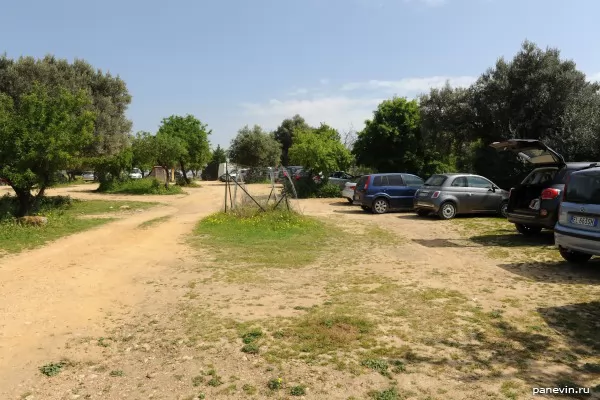
Having dismounted, have moved to be educated. Here young ladies are engaged in selfie:
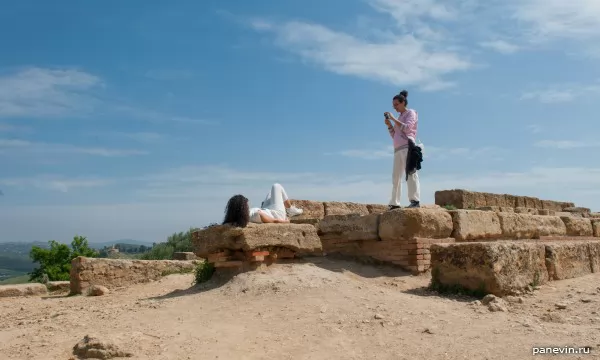
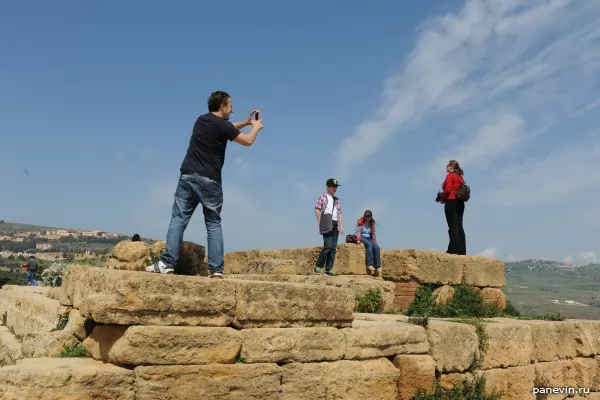
And here our small group of historians too has not stood aside and makes a photo.
But we have distracted. So, actually antique antiquity:

The colonnade which has remained up to now of Hera Temple (English Juno Temple), constructed by Greeks in V century B.C.
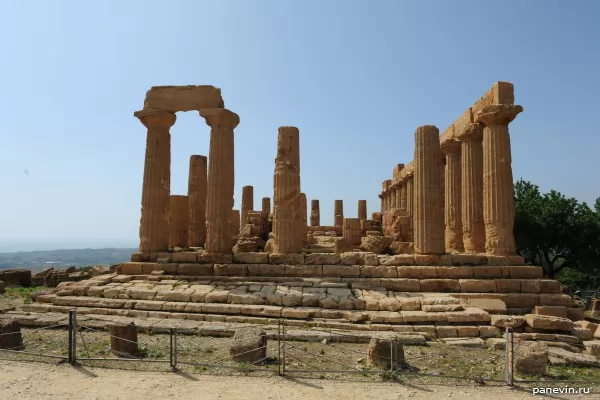
Greek Hera Temple ruins.

Between ruins all green, is set by low and well well-groomed trees. A view on Hera Temple.

On the right — the rest of a fortification in the ancient time surrounding an Ancient Greek city Akragas, once in the extent about 12 km.

In nowadays remained at most one and a half kilometre of a wall. Hera Temple ruins in the distance are seen, the wall lasts from it to Consent Temple and Hercules Temple.
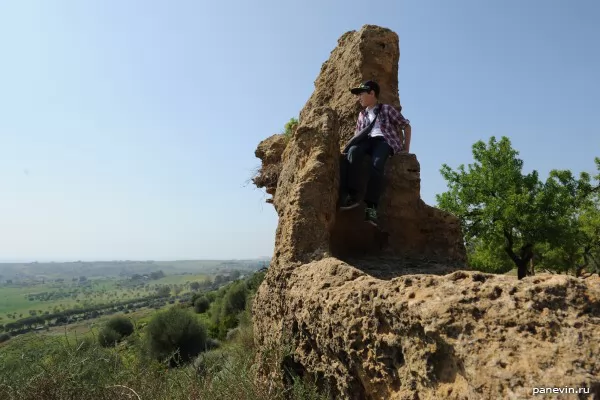
Part of a fortification of Akragas. And the most young historian of our expedition.

Greek Hercules Temple has remained worse — one party of a colonnade, and construction of same V century B.C. (470-460 B.C.)
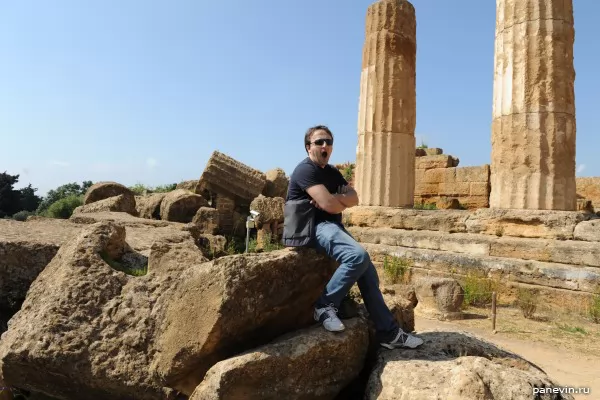
Our oldest historian has got tired from an antiquity abundance. But we have courageously continued our way.

And here the Consent Temple (Tempio della Concordia [italian], Harmonia [greek]) has remained perfectly, to measures antiquity, certainly. In the Middle Ages the temple has been altered in Christian (without total reconstruction), therefore, most likely, and remained up to now. Archeologists have found out nearby to a temple the tablet much more youngly a structure and the relation to it of an inscription not having with a part on Latin «Consent» from what the temple and has received a present name.

Temple of the Consent (Harmony) in the Valley of Temples in Agrigento.
And this temple was not been completed, and then still and the largest but was razed doric the Temple of Zeus Olympic from which the huge figure of Zeus (and it have tidied up in a museum).
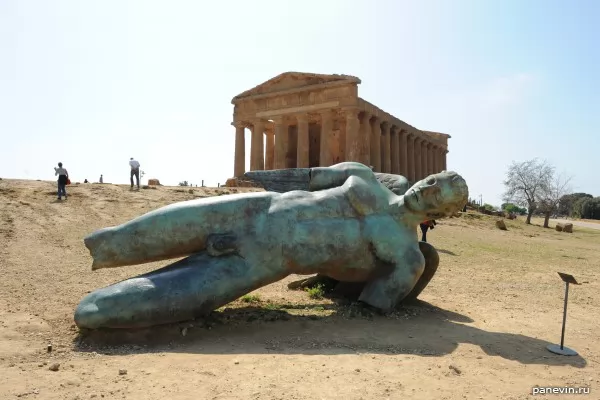
Before the Consent Temple statue of Icarus — a modern statue in the spirit of surrounding antiquity has lain down.

Valley of Temples (ital. Valle dei Templi) in Agrigento — the rests of the Greek temples on a place Rhodians colonies of Akragas.
March, look as all blossoms! And oranges already ripe!
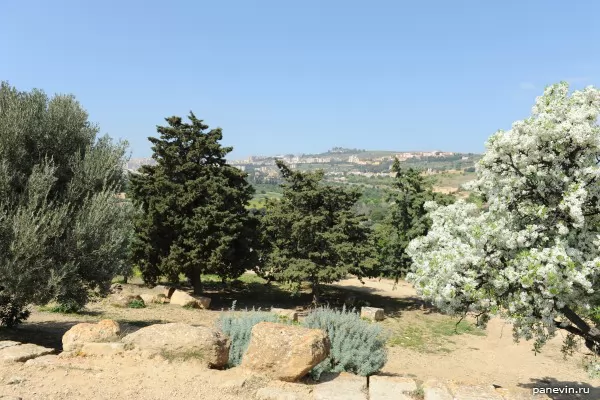
View of Agrigento from a hill of the Valley of Temples.
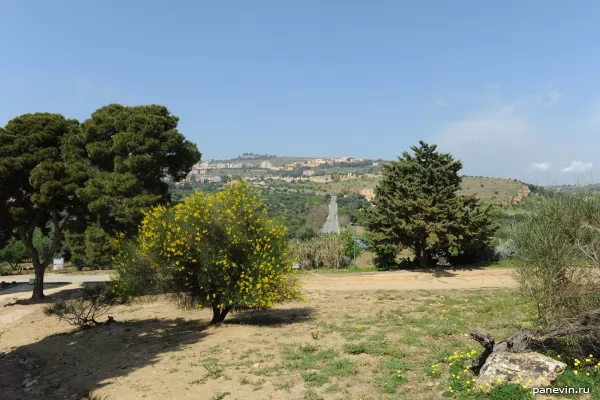
View of Agrigento from a hill of the Valley of Temples.
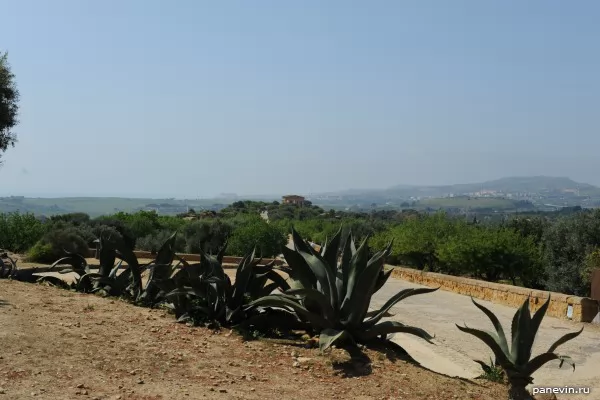
View the Temple of the Consent and Agrigento. On road roadsides between ruins cactuses and here such plants with long leaves grow (from a hall prompt — an agave; I am not strong in a tops of vegetable). The last, poor fellows, all with inscriptions on leaves. Local and coming гопота considers as the debt to scratch a knife a name of the imbetsila-author, a city and year.
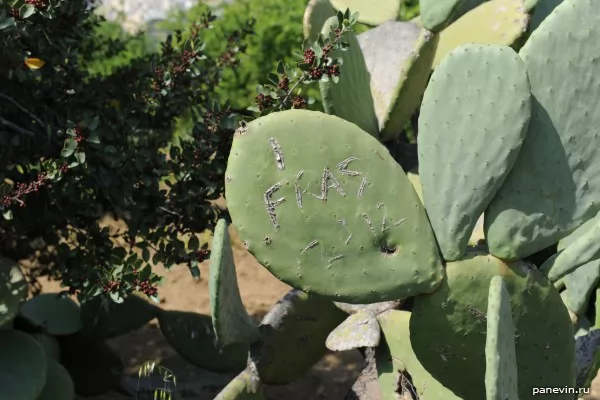
Here, even from almost native Arkhangelsk there were two morons:
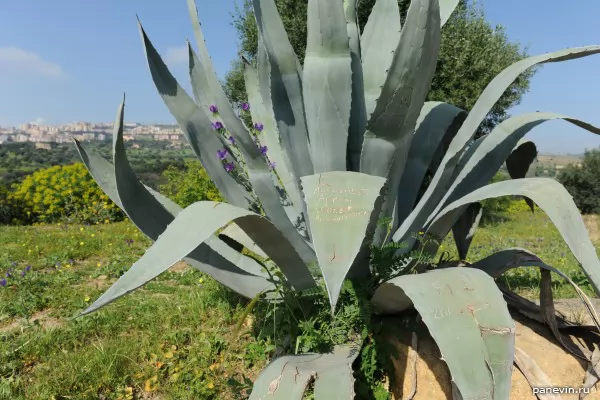
At last we have glanced to a local archaeological museum.

Colonnade of the Museum of Archeology.

Modern statue before the Archeology Museum. Our valorous historians have already fairly got tired.

Oratorios (ital. Oratorio di Falaride) near St. Nikolay's church (ital. Chiesa di San Nicola). The construction rests ~II centuries B.C., an oratorio of Falarisa — the backward tyrant.

The Roman ruins near Oratorija Falarisa. On a background — St. Nikolay's Church, on an average — Oratorios of Falarisa (ital. Oratorio di Falaride).
And in the end of a selection of photos of Agrigento the fine world map:
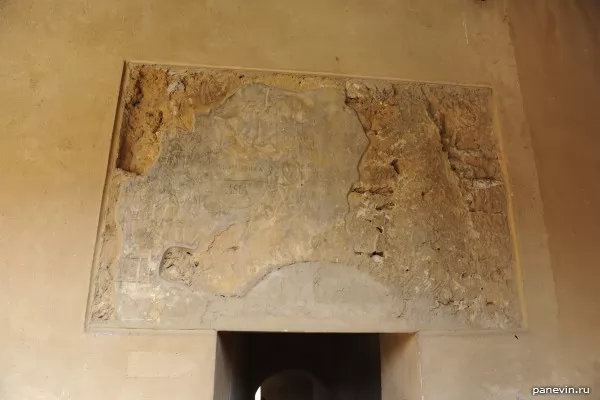

Share:
Themes: Agrigento 1 antiquity 4 attractions 134 Europe 25 Italy 12 photos 417 Sicily 12 travel 286
Ticket sales through JetRadar.com service without commissions and markups.
← Blog
poezdka_po_italii_agridzhento
blog





